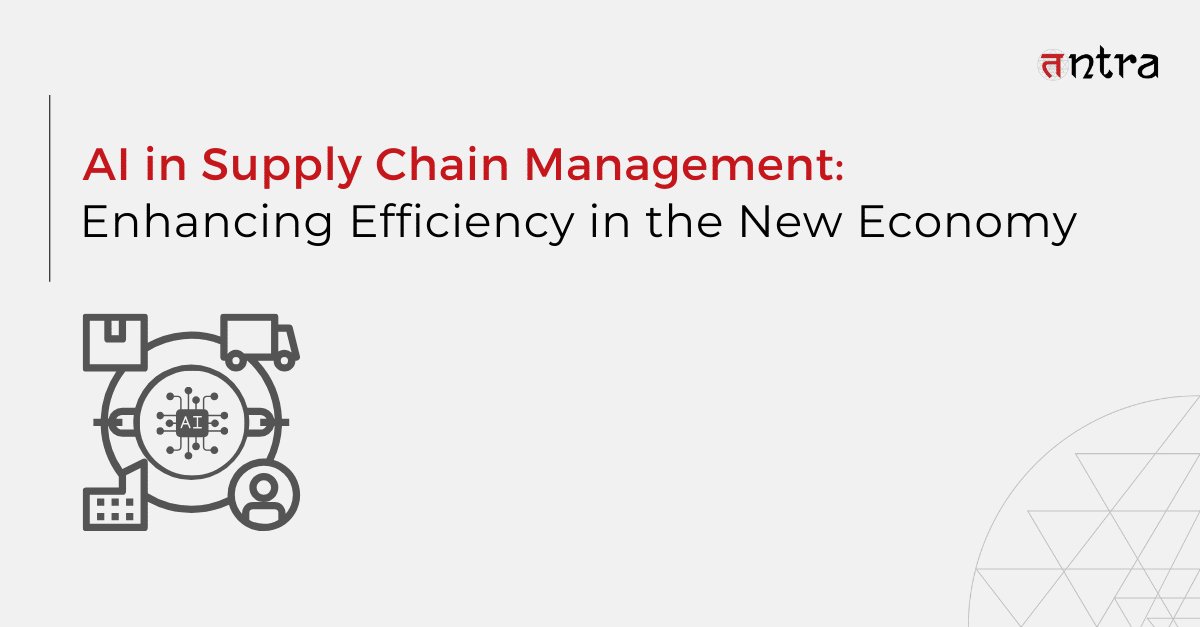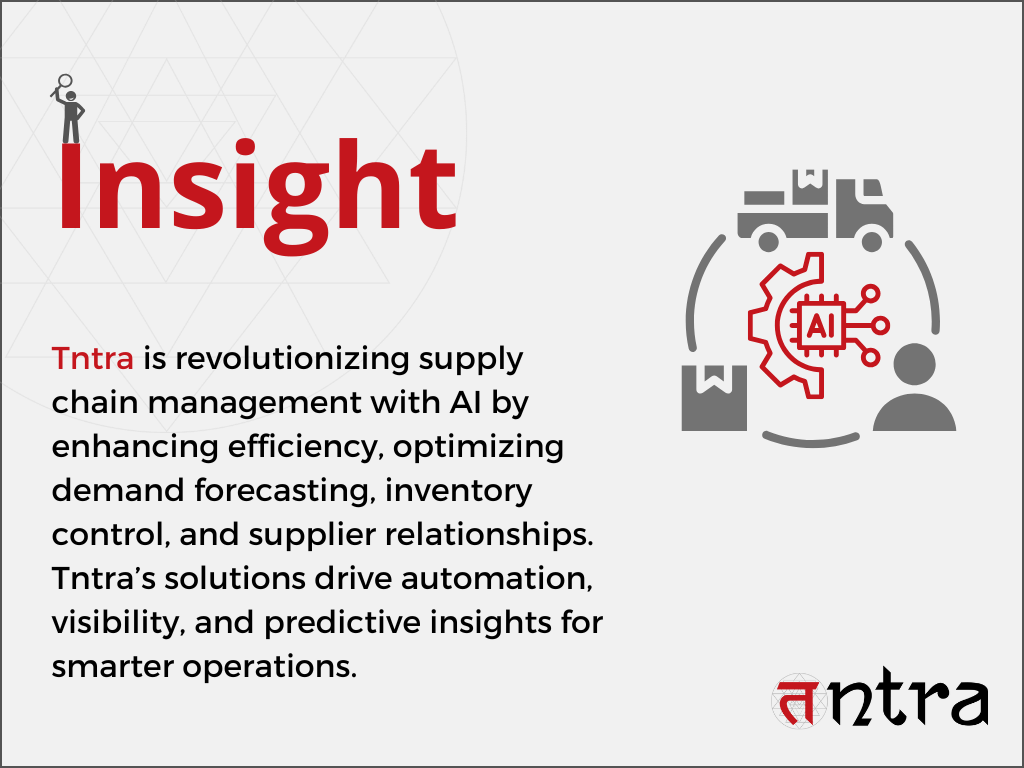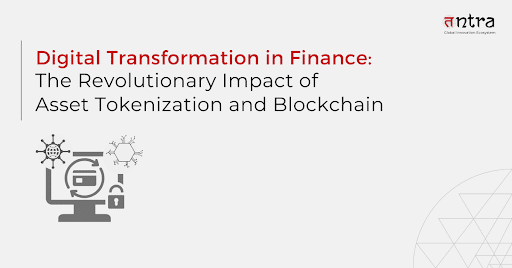
AI in Supply Chain Management: Enhancing Efficiency in the New Economy
Table of Contents
ToggleSupply chain management is being transformed by AI. AI is being used by businesses like Kraft Heinz to solve complicated problems, streamline processes, and fortify supply networks. According to market research, AI in supply chain management can improve demand forecasting, inventory management, and supplier relationships. To remain competitive in the dynamic field of supply chain management, it is becoming more crucial to partner with a supply chain software development company.

Within the next five years, supply chain organizations expect AI in supply chain management and machine automation to double their impact on operational processes, according to Gartner.
At the same time, it is anticipated that worldwide investment in IIoT platforms will increase by $1.67 billion by 2018 and reach $17.41 billion in 2025, achieving a compound annual growth rate (CAGR) of 40% over seven years.
According to a recent McKinsey report, AI in supply chain has significantly advanced operations, showcasing how AI applications in supply chain are transforming the industry. This highlights the growing role of AI in supply chain management and its strategic importance in today’s business environment. This blog will help you comprehend how AI supply chain solutions and analytics can impact your business performance.
In today’s digitally connected world, every industry aims to increase productivity by minimizing uncertainty. The rising demand for speed and efficiency makes a strong case for adopting AI for supply chain solutions, emphasizing the critical role of AI supply chain management in modern logistics.
AI Solutions Growing Influence on Supply Chain Management
According to a recent market study, the use of Artificial Intelligence in the supply chain is increasing. The value of Artificial Intelligence in the global Supply Chain Management (SCM) software market will be about $17.5 billion by 2028. The reports emphasize that their market analysis shows Supply Chains with AI are 67% more effective than those without AI. The lower risks and overall costs that AI integration delivers are responsible for this increased efficiency.
Reports also suggest the different forms of AI systems, including cloud-based AI as a service solution, which is anticipated to be worth more than $3.7 billion by 2028. Within the next five years, it is expected that this industry will hold more than 21% of the market.

Additionally, it is believed that by 2028, Edge computing for IoT (Internet of Things) systems will be used in AI technology for Supply Chain software solutions, reaching a value of $6.12 billion. The widely scattered structure of global supply chains makes Edge computing a particularly good fit because it gathers and processes data closer to the real data sources as opposed to in a centralized place.
Early adopters that successfully incorporated supply-chain management powered by AI have overtaken their more cautious competitors. They managed to reduce logistical costs by an amazing 15% while simultaneously improving service levels by 65%. 54% of executives said integrating AI into their supply chain operations significantly increased business earnings. This clearly illustrates the undoubted potential of AI technology in the field of logistics and supply chains.
Key AI Technologies Transforming Supply Chains in 2025
Supply chain visibility—the ability to monitor inventory and track goods as they move through the supply chain—is a foundational step toward realizing the potential of artificial intelligence in supply chain management to streamline internal operations. With AI in supply chain management, businesses gain the ability to respond instantly to disruptions through real-time insights and predictive capabilities. Here’s how various AI-driven technologies are reshaping the landscape:
- Predictive Analytics: AI for supply chain management enables accurate forecasting of consumer sentiment and market demand. Leveraging AI supply chain management solutions, systems like Google’s Video AI analyze scanner data at point-of-sale locations, customer reviews, and social media content—text, images, and videos. The result is a comprehensive, real-time AI powered supply chain dashboard that delivers alerts on demand anomalies caused by competitor activity or product issues.
- Generative AI: Generative AI (GenAI) applies learned data to create new outputs—text, images, video, music, or numerical data. As the technology matures, it becomes more accessible and impactful. Nearly 40% of supply chain companies have already invested in GenAI, particularly for knowledge management. These AI solutions in supply chain simplify communication across planning systems. For instance, a biotech company uses GenAI chat capabilities to improve forecasting accuracy—an example of how artificial intelligence in supply chain planning enhances operational intelligence.
- IoT for Real-time Visibility: IoT-enabled GPS and RFID technologies deliver real-time location updates on goods, vehicles, and shipments. Integrated with AI in warehouse management, this level of visibility reduces theft, minimizes delays, and improves delivery accuracy—boosting customer satisfaction. Whether it’s tracking a truck headed to a distribution center or a container crossing international borders, AI based supply chain management ensures accurate, actionable data.
By combining IoT and artificial intelligence in supply chain, businesses can gain end-to-end visibility—not only within their own operations but across suppliers, manufacturers, and logistics partners. This comprehensive model helps identify inefficiencies, speeds up coordination, and fosters deeper collaboration. Artificial intelligence and supply chain management together are enabling a new era of connected, intelligent, and agile logistics.
How does AI Improve Supply Chain Management?
Supply chain management software is being redefined by AI-powered solutions such as SAP AI SCM modules, o9 Solutions, and Blue Yonder, which are shifting reactive procedures toward data-driven, predictive planning. These platforms utilize AI demand forecasting to interpret real-time signals—ranging from weather disruptions and geopolitical shifts to customer demand and inventory levels—enhancing decision-making agility at every stage.
As we move into 2025, AI integration is becoming even more advanced. Emerging tools are combining digital twins, IoT sensors, and machine learning algorithms to deliver full-spectrum visibility and autonomous supply chain planning. These innovations enable organizations to not only optimize inventory levels using AI inventory optimization techniques but also simulate various operational scenarios and make live adjustments.
Additionally, with supplier risk AI SCM capabilities, businesses can proactively assess and mitigate risks related to supplier performance, compliance, and disruption potential—ensuring a more resilient and adaptive supply chain ecosystem.
Let us take a closer look at how AI affects supply chain performance –
- Demand Forecasting
- By examining previous sales data, market patterns, and external factors like weather and economic indicators, AI solutions improve demand forecasting. As a result, businesses can better estimate demand, optimize inventory, reduce stockouts and overstocks, and boost customer satisfaction.
- Real-time AI-powered algorithm use improves inventory management by eliminating operational waste and maximizing resource distribution along the supply chain.
- Inventory Management
- Artificial intelligence (AI)–powered supply chain management software solutions revolutionize inventory management by continuously evaluating real-time inventory data and providing recommendations for optimal stock levels. Simplifying operations by lowering carrying costs, preventing stock obsolescence, and improving response to demand variations.
- Artificial intelligence (AI)-powered supply chain management software solutions revolutionize inventory management by continuously evaluating real-time inventory data and providing recommendations for optimal stock levels. Simplifying operations by lowering carrying costs, preventing stock obsolescence, and improving response to demand variations, this transformation is facilitated by leading AI data solutions for businesses.
- AI’s capacity to consider seasonality and lead times ensures effective just-in-time inventory management methods, enhancing cash flow. Walmart’s use of AI to reduce stockouts and improve customer happiness through improved inventory levels and effective delivery is an example of how AI provides timely shipping tracking, assisting managers in data-driven decision-making.
- Relationship Management
- The addition of AI to supply chain management applications optimizes the management of supplier relationships by providing continuous performance monitoring, risk identification, and alternative supplier evaluation. This gives businesses the ability to develop supply chains that are more robust and to bargain for advantageous supplier terms.
- Overstock and out-of-stock problems are reduced through effective collaboration between suppliers, manufacturers, retailers, and planners. As part of its function in supply chain risk management, AI also continuously monitors a variety of data sources, providing early risk identification and insights for proactive risk mitigation and supply chain resilience.
Real-World Case Studies of AI in Supply Chain
From Insight to Impact: Kraft Heinz Optimizes Logistics with AI
Kraft Heinz, a notable food manufacturer, has strategically harnessed the potential of artificial intelligence (AI) to revolutionize its supply chain management. By seamlessly integrating AI in supply chain management and logistics, Kraft Heinz aims to surmount operational challenges.
The complex nature of supply chain management often leads to issues like inefficient demand forecasting, suboptimal transportation routes, and unforeseen disruptions. Kraft Heinz embraced AI technology to counter these challenges, bringing precision and agility. By implementing AI in supply chain and logistics, Kraft Heinz effectively uses AI to gather and scrutinize diverse data points, including inventory levels, production trends, and customer demand.
The true magic of AI applications lies in their ability to make sense of this data. Advanced algorithms enable Kraft Heinz to predict demand accurately, optimize inventory to reduce wastage, and streamline transportation routes, thus significantly enhancing the overall supply chain efficiency. Additionally, AI’s capabilities aid in monitoring potential disruptions, such as weather anomalies or geopolitical shifts, enabling Kraft Heinz to proactively implement contingency plans.
Kraft Heinz has achieved remarkable outcomes by adopting AI technology in supply chain management and logistics. Operator alerts have been reduced by 42%, highlighting the tangible impact on efficiency and risk mitigation. Moreover, AI’s data-driven insights have led to a noteworthy $30 million increase in sales, affirming its strategic value.
Source: Supply Chain Tribe
Tntra’s Smart Solution for Multilingual B/L Processing in Global Logistics
Tntra developed a serverless solution for a global logistics provider to streamline B/L (Bill of Lading) processing from various freight forwarding websites. By integrating with a centralized ERP system, the solution automatically parses and maps shipment data, supports multiple languages, and boosts operational efficiency by 30–40%. With the ability to process 15,000 B/Ls daily, the system replaces manual effort, reduces costs, and ensures a seamless, multilingual logistics workflow—powered by Python, AWS, and Puppeteer.
Explore How Tntra Enabled 15,000 B/Ls Daily – Read the Case Study Now!
The Future of Supply Chains is Intelligent — Partner with Tntra to Lead the Way
Integrating AI into supply chain management solutions continues to be a transformative force, and by 2025, its strategic importance has only deepened. Many leading organizations worldwide have successfully harnessed AI to tackle complex supply chain challenges, significantly enhancing operational efficiency and resilience.
Recent market studies confirm growing global confidence in AI-driven supply chain modernization, with businesses increasingly recognizing its power to enable all-encompassing SCM software solutions.
Companies adopting AI-enabled SCM solutions are experiencing advanced demand forecasting, precision-driven inventory management, and stronger supplier collaborations — all contributing to more agile, future-ready supply chains. This acceleration is made possible by the relentless innovation of leading AI solution providers, who continue to push the boundaries of what’s possible for supply chain businesses.
As supply chains become more connected and intelligent in 2025 and beyond, partnering with a trusted software product engineering company like Tntra is crucial.
As the industry evolves, partnering with a software product engineering company such as Tntra becomes essential for staying competitive in the dynamic world of supply chain management.
Contact AI experts today to discuss your custom AI-based Supply chain management (SCM) solution.
FAQS
What is the role of AI in enhancing supply chain efficiency?
AI plays a vital role in enhancing supply chain efficiency by automating routine tasks, improving demand forecasting, optimizing inventory levels, and providing real-time visibility. With AI in supply chain management, businesses can make data-driven decisions, reduce delays, minimize costs, and respond proactively to disruptions across the supply chain.
How does AI increase efficiency?
AI increases efficiency by analyzing vast datasets quickly and accurately, identifying patterns, and offering predictive insights. In the supply chain, AI can streamline logistics, optimize routes, forecast demand, manage warehouse operations, and automate decision-making processes—leading to faster, smarter, and more cost-effective outcomes.
What is the future of AI in supply chain management?
The future of AI in supply chain management lies in fully autonomous operations, real-time adaptive planning, and end-to-end visibility. Emerging technologies such as digital twins, IoT integration, and AI powered supply chain platforms will enable businesses to simulate scenarios, respond instantly to market changes, and achieve unprecedented levels of agility and resilience.
How does generative AI improve supply chain management?
Generative AI improves supply chain management by enhancing knowledge sharing, scenario planning, and decision support. It enables natural language interactions with systems, allowing teams to query data and receive actionable insights instantly. GenAI also automates content generation, such as demand forecasts and reports, driving smarter planning and collaboration across the supply chain.
What are the benefits of using AI in warehouse management?
AI in warehouse management offers benefits such as real-time inventory tracking, automated picking and packing, predictive maintenance of equipment, and optimized space utilization. It helps reduce errors, labor costs, and operational delays, contributing to a more agile and responsive supply chain.
What are some real-world examples of AI supply chain solutions?
Real-world examples include predictive analytics for demand planning, AI-powered route optimization for logistics, intelligent chatbots for procurement, and computer vision for quality control. Companies like Amazon, DHL, and Kraft Heinz have adopted AI supply chain solutions to improve efficiency, reduce waste, and enhance customer satisfaction.
How can companies get started with AI in supply chain planning?
Companies can start by identifying pain points in their supply chain operations and exploring targeted AI supply chain management solutions such as forecasting tools, warehouse automation, or AI-driven analytics platforms. Partnering with a trusted software engineering firm like Tntra can help design scalable, tailored artificial intelligence in supply chain planning strategies that align with business goals.





